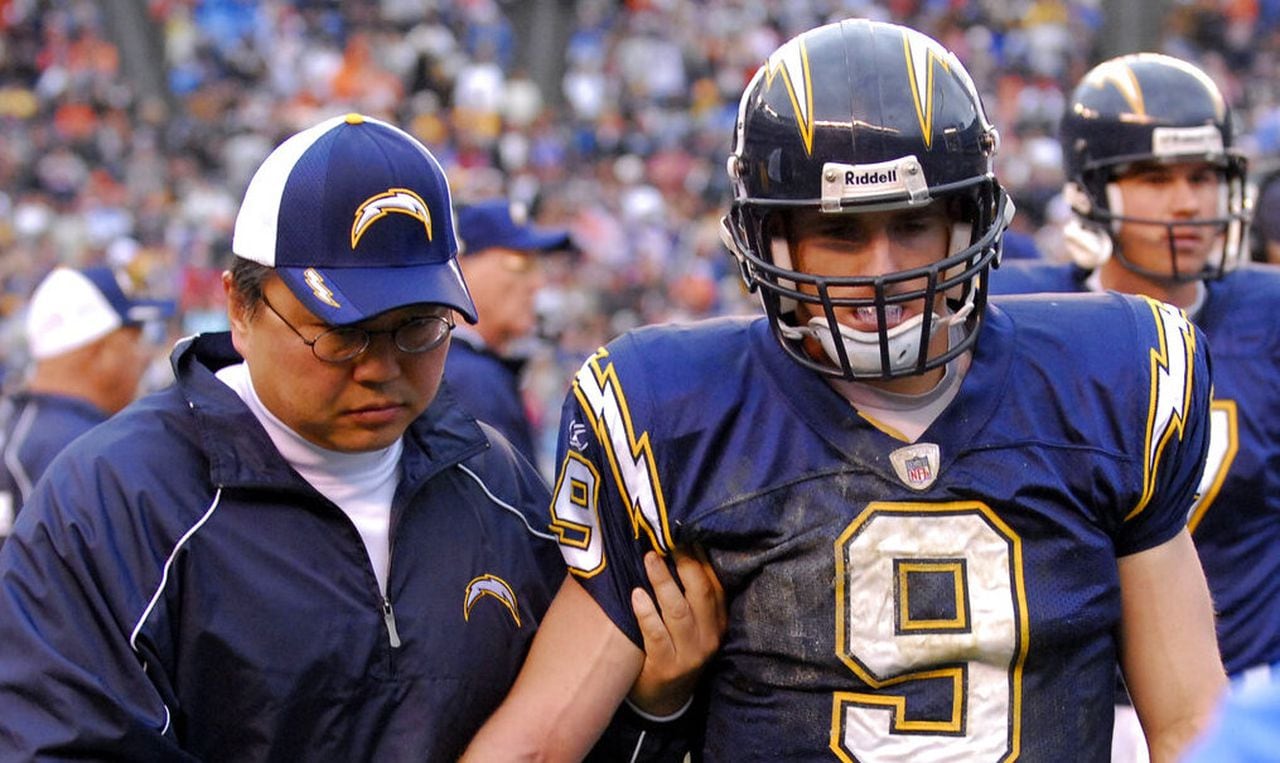Drew Brees talks about Sabanâs Dolphins rejecting him
It’s one of the all-time “sliding doors” moments in football history.
Had Drew Brees signed with the Miami Dolphins as a free agent after the 2005 season, it’s possible Nick Saban might never have become head coach at Alabama. But Dolphins team doctors refused to clear Brees due to his surgically repaired right shoulder, and Brees went on to a legendary 15-year tenure with the New Orleans Saints.
The Dolphins — who had gone 9-7 and contended for a playoff berth in Saban’s debut season of 2005 — instead signed injury-prone quarterback Daunte Culpepper, and scuffled to a 6-10 record in 2006. After that season, Saban was off to Alabama, on his way to six national championships in 17 seasons and secure status as the greatest coach in college football history.
Saban has talked about the Brees debacle many times over the years, including telling a group of Texas high school coaches in 2021 that “I decided right then when that happened that we don’t have a quarterback in the NFL, we’re not going to win. I’m getting out of here.” Brees told his side of the story in an appearance Thursday on the Doug Gottlieb Show on Fox Sports Radio, saying the Dolphins passing on him following shoulder surgery provided him with all the incentive he needed to excel in New Orleans.
“I go through the process of getting fixed up by Dr. James Andrews,” Brees told Gottlieb. “But then it’s the New Orleans Saints or the Miami Dolphins in free agency, and the Dolphins’ doctors wouldn’t clear me. They told Saban ‘he’s got a 25% chance of coming back and playing again.’ When you’re given that prognosis, and you feel like something has been totally ripped away from you in a split second, I think it gives you a ton of gratitude. I think it really forces you to dig down deep with your faith.
“And honestly, there is no way I would have gotten to where I was and had the career I had after that, if it wasn’t for that moment. Going through those things was necessary for me to be able to accomplish the things we were able to accomplish. … You’ve got to go through some tough times to see what you’re all about and take yourself to place you otherwise wouldn’t go.”
Brees’ departure from his original NFL team, the San Diego Chargers, also has a state of Alabama connection. Though Brees led the Chargers to back-to-back winning records in 2004 and 2005 (with a playoff berth in the first year), former first-round pick Philip Rivers — an Athens native who is now head football coach at St. Michael Catholic School in Fairhope — was considered the team’s heir apparent at quarterback as the 2005 season wound down and Brees approached free agency.
Brees suffered a catastrophic shoulder injury in the 2005 season finale against the Denver Broncos, likely making up the minds of anyone in San Diego who might have wanted to keep him. Rivers went on to quarterback the Chargers for the next 14 seasons.
“Half the building was really pushing for (Rivers) to be the guy, and the other half felt like I’d earned the right,” Brees said, before detailing the circumstances of his injury.
“I get hit by John Lynch on a weak safety pressure — we should have had him blocked,” Brees continued. “He knocks the ball out, so now the ball’s just rolling around at the goal line. So it’s a fumble. Rule No. 1, as a quarterback, they tell you ‘never jump on a fumble.’ Bad things happen — wrist, elbow, shoulder. Sure enough, I jump on it and Gerard Warren … he didn’t go for the ball, he went for me. Unfortunately, I got stuck at the bottom of that pile, my right arm got stuck above my head. I dislocated my shoulder out the bottom, which is a bull rider’s injury.
“… I stand up and my arm is actually stuck out to the side. It was dislocated, it was out the socket. So I’m walking off the field, I knew what was at stake for the Chargers, so I’m thinking ‘this is probably the last time I ever put on a Chargers uniform.’ Second thought is, ‘it might be the last time I ever play football.’”
Brees’ instincts were partly correct, of course. Though he went on to play another decade-plus in New Orleans, his time with the Chargers was over.
The injury meant he wouldn’t play in Miami, either. So perhaps thanks to John Lynch, Gerard Warren and the Dolphins’ team doctor, Alabama wound up enjoying 17 years of incredible football under Saban.
